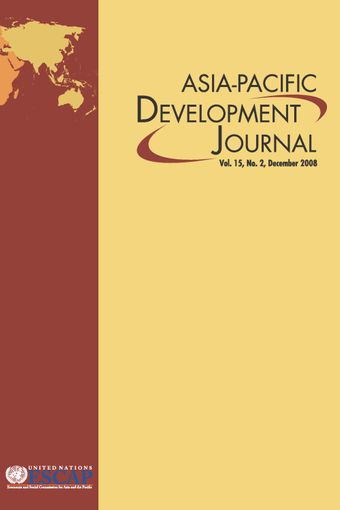-
Stimulating income generation for the population in Uzbekistan: An econometric analysis
- Source: Asia-Pacific Development Journal, Volume 15, Issue 2, Oct 2009, p. 97 - 116
-
- 17 Oct 2009
- Previous Article
- Table of Contents
- Next Article
Abstract
The core issue of national anti-crisis programmes in many countries is to stimulate domestic demand. Anti-crisis programme in Uzbekistan also includes such measures as reducing tax burden, expanding access to credit resources for producers and providing additional government support for small and medium-sized enterprises. These measures are expected to have an impact on income growth in small and medium-sized enterprises as well as in the population, in turn stimulating the expansion of cumulative demand and its positive influence on the dynamics of gross domestic product. This paper outlines channels and mechanisms through which these measures can be carried out, and explores methodological approaches and methods of quantitative estimation used in medium-term forecasting. Based on the results, scenarios are constructed to analyse and compare the rates of disposable-income increases that could potentially result from various combinations of measures and economic policy parameters.





